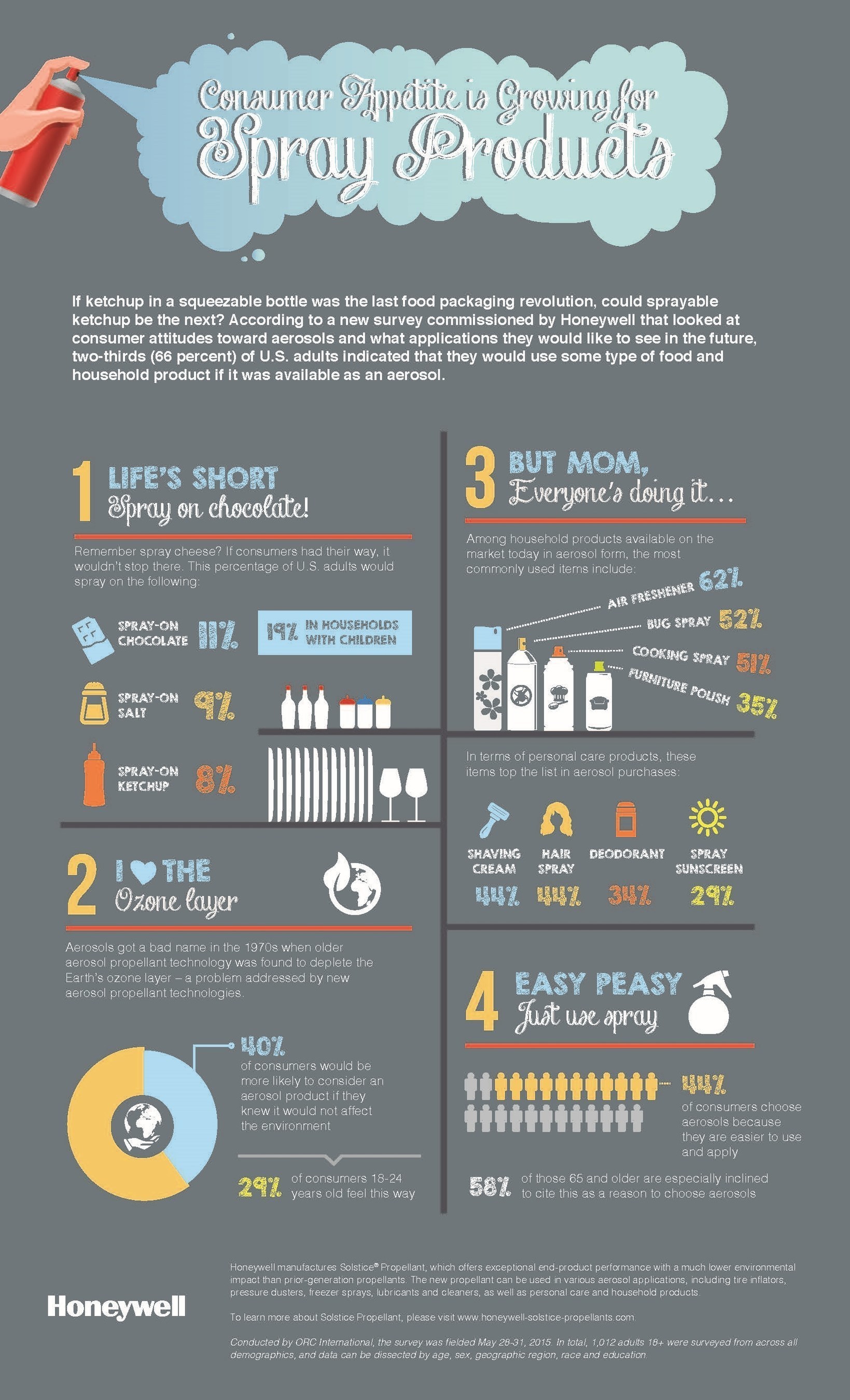If ketchup in a squeezable bottle was the last food packaging revolution, sprayable ketchup could be the next one, according to a new survey commissioned by Honeywell that looked at consumer attitudes toward aerosols and what applications they would like to see in the future.
The survey of more than 1,000 US adults found that 66% would use some type of food and household product if it were available as an aerosol.
Conducted by ORC International, the survey was fielded May 28 to 31, 2015.
In total, 1,012 adults of at least 18 years old were surveyed from across all demographics, and data can be dissected by age, sex, geographic region, race and education.
The most popular food items listed by respondents include spray-on chocolate (11%), spray-on salt (9%) and spray-on ketchup (8%).
Demand for spray-on chocolate in households with children nearly doubles when compared to those with no children. The survey also found that 93% of respondents use aerosol products in some capacity, and that the perception of aerosols being harmful to the environment is fading.
“Not long ago, the thought of spray-on sunscreen was revolutionary,” said David Cooper, global business director for Honeywell’s Fluorine Products business, which has introduced an aerosol propellant with a lower global warming potential than others commonly in use.
“Today, consumers’ appetite for additional household and personal care products is growing across a broad spectrum of applications – from stain removers and hand sanitizers to condiments.”
Among the survey’s findings, 44% of respondents choose aerosols because for easy use and application.
Those 65 and older are especially inclined to cite this as a reason to choose aerosols (58%).
Consumers are already big users of aerosols: Among household products available on the market today in aerosol form, air freshener (62%), bug spray (52%), non-stick food spray (51%) and furniture polish (35%) were the most commonly used items.
Concerns about aerosols are fading: Aerosols got a bad name in the 1970s when older aerosol technology was found to deplete the Earth’s ozone layer, a problem addressed by new aerosol technologies.
While some consumers still believe aerosols are harmful to the environment, the survey found 40% of consumers would be more likely to consider an aerosol product if they knew it would not affect the environment.
That dropped to 29% when looking at consumers 18-24 years old.










